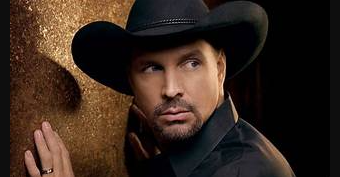After Brooks named the woman in an amended complaint Tuesday, her attorneys said they “will be moving for maximum sanctions against” him immediately
Country music superstar Garth Brooks has named the woman who accused him of rape in a recent lawsuit, which has sparked significant legal and public controversy. In an amended complaint filed on Tuesday in federal court in Mississippi, Brooks’ attorneys revealed the name of the woman, previously referred to as Jane Roe. Brooks’ legal team has claimed that he is the victim of a “shakedown,” alleging that the woman has violated the authority of the court in a related case.
The woman, a makeup artist who worked for Brooks’ wife, Trisha Yearwood, and later with Brooks, initially filed the lawsuit under the pseudonym Jane Roe, claiming that Brooks sexually assaulted her in 2019. Her attorneys, however, reacted strongly to Brooks’ decision to reveal her identity, stating that they would seek maximum legal sanctions against him for publicly naming a rape victim. They criticized Brooks for what they deemed an act of spite, arguing that he outed the accuser with no legal justification.
Brooks’ legal team has defended the decision, citing the woman’s own filings in which she expressed willingness to proceed with her case under her real name if the court deemed it necessary to deny her anonymity. The legal back-and-forth began when a lawsuit was filed by a John Doe, a celebrity from Tennessee (later identified as Brooks), who alleged that the woman had made false claims of sexual assault in exchange for millions of dollars.
In her lawsuit, the woman describes her work with Brooks dating back to 1999 and alleges that in 2019, while working with him in a Los Angeles hotel room, he raped her. Additionally, she claims that Brooks exposed himself to her multiple times, engaged in inappropriate conversations about sexual fantasies, and sent sexually explicit messages. Brooks has consistently denied the allegations and has described them as baseless.
The legal battle is ongoing, with both sides fiercely contesting each other’s claims. Brooks’ team continues to argue that the lawsuit is a fraudulent attempt to extort him, while the woman’s attorneys are pushing for legal actions to hold him accountable for his actions and public disclosure. The case has brought heightened attention due to the high-profile nature of the parties involved and has sparked a broader conversation about legal protections for alleged victims of sexual assault.
While the lawsuit progresses through the courts, the situation has stirred strong reactions from the public and legal experts alike, with many questioning the ethics of naming an accuser and the implications it may have on the broader #MeToo movement and the treatment of victims in legal cases.

